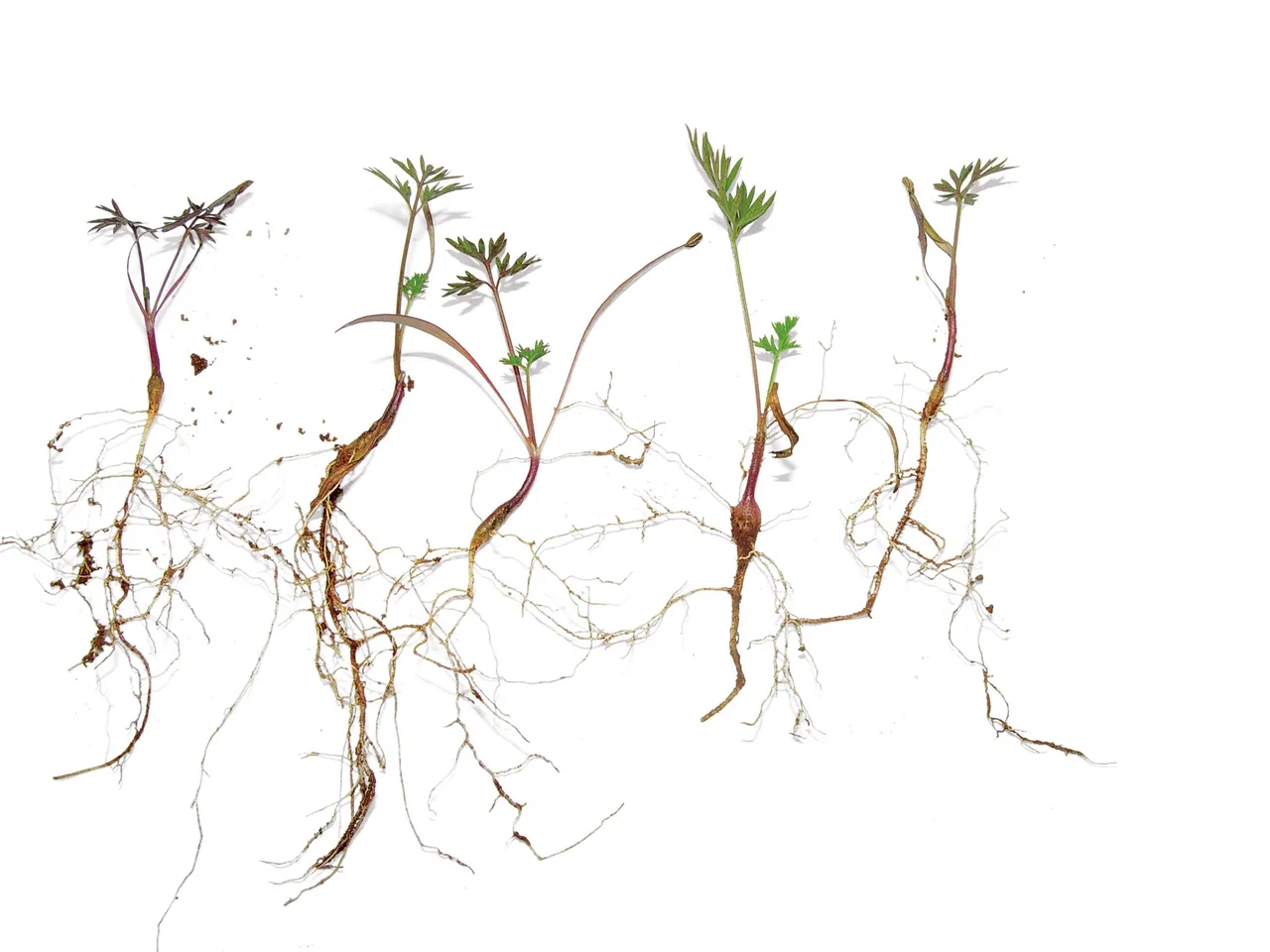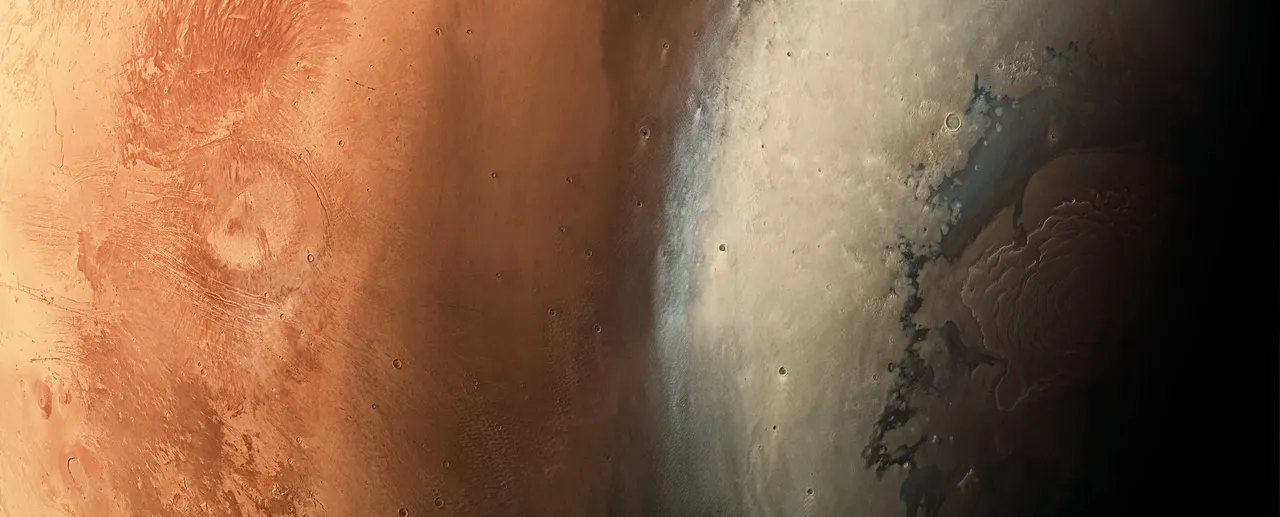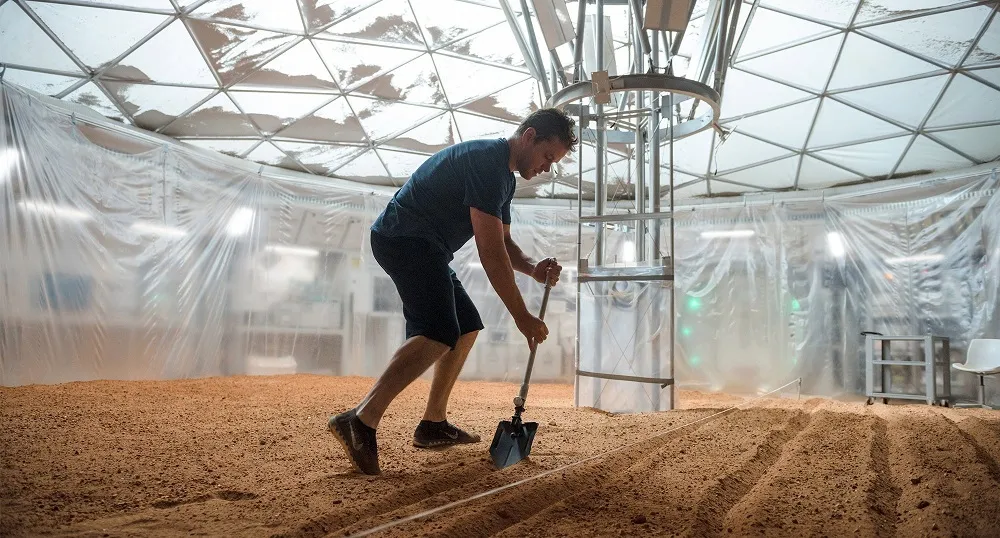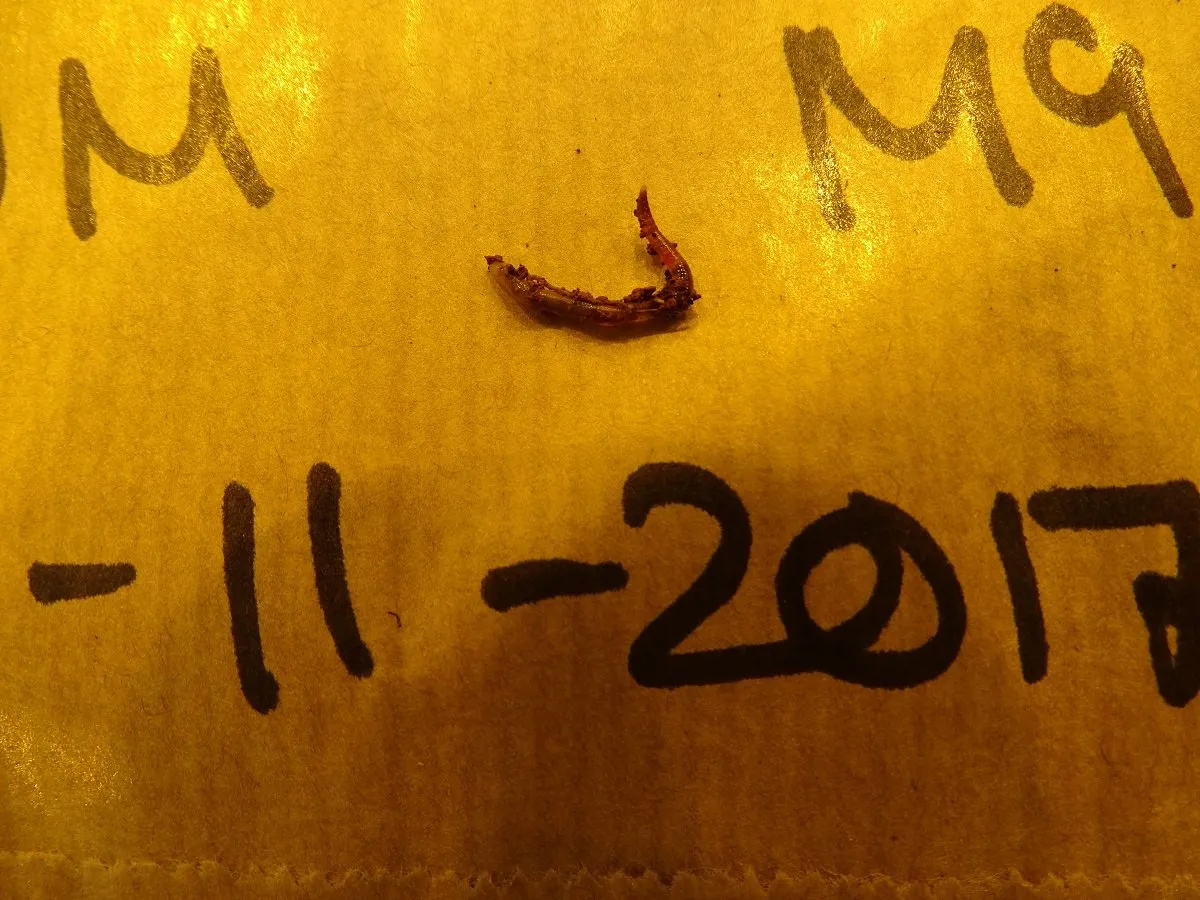
image source
It's a carrot. Why does it look so shitty? Well, it's "Martian" carrots. Certainly, not straight from the red planet, but grown in the soil, very similar in composition to Martian soil.
We know that there is water on Mars , albeit in the form of ice, but this does not prevent to use it for agriculture. Other question: can we use Martian soil for these tasks? If not, humanity will have to solve a lot more problems with colonization.

The North polar cap. image source
Scientists from Wageningen University and Research Centre have been investigating the analogues of the Martian soil for several years. The prototype of Martian soil is as close to the original as possible and contains the same basic mineral substances: nitrogen, potassium, magnesium, calcium and iron. And the scientists didn't use any fertilizers (unlike Matt Damon).

image source
By the way, for experiments scientists use volcanic soil from the Hawaiian Islands. Which is very similar to the Martian regolith - a loose layer of sand and dust on the surface of planet.
After 3 months they were able to harvest vegetables that do not contain excess metals and are edible. But as we can see, it looks not very nutritious.
The problem is that the Martian soil has poor water-holding capacity, its particles are too small and between them there is less space for moisture.

The Martian regolit. inage source
However, the problem of loosening of the ground is easily solved by ordinary worms. Earthworms are crucial for soil fertility, creatings tunnels which facilitate access of air and moisture. In addition, they recycle waste and produce vermicompost — organic fertilizer that enriches the soil in nitrogen, phosphorus and potassium.

Young worm, born in mars soil simulant. image source
The same scientists only two months ago have proved that the earthworms successfully survive and reproduce in the "Martian" soil. Thus, theoretically we are able to create a closed ecosystem for agriculture on Mars.
It remains only to develop protection against solar radiation, low temperatures, and solve the problem with the lack of oxygen...
Hundreds of scientific discoveries occur around the world every day. But they may contain insufficient data to create a full-fledged article or seem rather boring for usual readers, because of the strong scientific specifics. Although, I see that steemit community loves science in all its manifestations.
#Sciencepop - science popularization. I suggest you use this tag in order to share interesting news, photos, stories from the world of science in a short format. Perhaps, in time, in this way, we will be able to create a powerful news and encyclopedic database. And use the links not to the external resources, but to sources inside the Steemit platform. This will significantly improve the indexation of the site and improve its position in search results.
